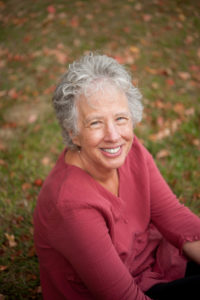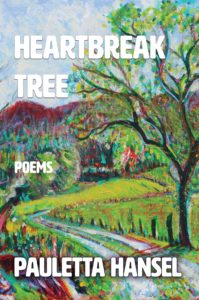
 Review by Laura Dennis
Review by Laura Dennis
Sometimes literature creates what can only be described as either a disquieting comfort or a comforting disquiet. The comfort comes from the recognition of shared feelings and experiences, the disquiet from the nature of what is shared. Such was my experience reading former Cincinnati Poet Laureate Pauletta Hansel’s latest poetry collection, Heartbreak Tree. Published in 2022, the volume contains pieces which were clearly written during or after COVID lockdown, a time of fearful introspection that for some creatives seems to have yielded extraordinary if unsettling fruit. At least this is how I imagine the genesis of Heartbreak Tree, a work where past, present, and future meet. Take, for example, the titular poem:
The magnolia––bud, blossom, decay
all on one gnarled branch.
In the nursing home,
my mother asks, “Do you ever
shut your eyes and wonder,
whatever happened to me?”
The question drives not just this poem, but also the book, more frequently from the speaker’s point of view than the mother’s. The work is divided into four sections, each with its own thematic thread. The first takes us back to the speaker’s childhood in Eastern Kentucky in an exploration of the meaning of home. We then learn more about her mother before moving to adolescence and the sexualization of the speaker’s developing female body. We see her trying to gain control her physical self as well as her words, her narrative. Finally, the fourth section moves from the speaker into the world as it explores traumas that been inflicted from without. “Mundus Novus,” to cite just one example, juxtaposes the death toll of COVID with her family’s history as early settlers in the Jamestown colony.
Although each section contains its own throughline, many themes and images recur throughout the book, most notably in the redeployment of certain titles within and between sections. Six poems entitled “Story,” for instance, cover often disturbing family lore about the speaker’s parents, grandparents, and more distant ancestors. Each section also contains a “Letter to Myself, Age 15,” each preceded by an epigraph from Henri Michaux’s “I Am Writing to You from a Far-Off Country.” In these poems, the body, notions of female beauty and desirability, and the move toward writing are all at stake. It is no accident that 15 is also the age invoked in the powerful poem, “Interview,” which concludes the third section by recounting a sexual assault in fragmented form.
While the collection features a handful of men’s stories, these are mostly background to those of women. These include the final “Story,” which subverts the Biblical begats by transforming them into a matrilineage, since “we all know that most of what gets written is his story.” Worn tropes concerning stepmothers are also upended, not only in epistolary poems addressed to the speaker’s stepdaughter, but also in the clipped cadences that conclude “The Stepmother’s Lament”:
I have no way but words
to sing you back
into the story
composed,
not flesh,
but choice
and chance.
Tell me,
what am I
supposed to do
with all this love?
The collection expands the possibilities of poetry in other ways as well. The playful, touching prose poem, “Things I Would Never Say in a Poem,” makes room for cliches and a jar of Tang, while the speaker of “At the Lifestyle Center” casts about for a “figurative contradiction.” This extends into experiments with form, whether it be the ever-shorter lines mirroring the gradual snuffing out of the mother’s life in “The Blessing” or the suggestive shape of the text in “First Memory of Pleasure.”
Other features of this evocative, multilayered work include the sensory details––the look and feel of the land, the many smells. It is also worth mentioning Hansel’s other accolades, including her 2017 Weatherford Award for best Appalachian Poetry and her soon-to-conclude term as Writer-in-Residence for the Public Library of Cincinnati and Hamilton County. As a Kentucky resident, I benefit from a geographic proximity that has allowed me to hear Hansel read and deliver craft talks in a variety of venues. Readers can experience some of this for themselves on Hansel’s website The Poet’s Craft. The most visceral experience, however, is found in the poetry itself. In the specificity of the speaker’s experiences and trajectory, readers will discover not just her hidden truths, but also echoes of their own.
Heartbreak Tree by Pauletta Hansel
Madville Publishing 2022 $9.99 [e-book]; $18.00 [paper]
ISBN 9781948692892 [e-book]; 978194869885 [paper]
Laura Dennis is a college professor and co-editor of book reviews for MER. She has published book reviews and her own creative work in a variety of outlets, including MER Vox Quarterly, Still: The Journal, Change Seven, Bethlehem Writer’s Roundtable, Bluff & Vine, Northern Appalachia Review, and Kentucky Philological Review.
